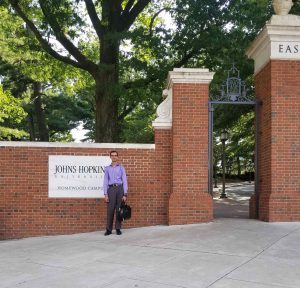 Writing this blog over the summer has been in mind for weeks. I just haven’t gotten around to actually sitting and writing it down (and blaming procrastination is overrated). But with the fall semester resuming in less than a month and prospective students considering CCBC as an option, I thought to update you about this beautiful summer.
Writing this blog over the summer has been in mind for weeks. I just haven’t gotten around to actually sitting and writing it down (and blaming procrastination is overrated). But with the fall semester resuming in less than a month and prospective students considering CCBC as an option, I thought to update you about this beautiful summer.
You know what I am supposed to be doing right now? Reviewing my PowerPoint presentation for the Leadership Alliance National Symposium (LANS) to be held in Hartford, Connecticut in less than a week. Studying for my SECOPS certification exam (yay, I passed SECFND after two tries!). Working on my second summer class’ materials. And more. But let me share with you what really matters.
This summer, I earlier stated in my blogs, I received some really good news. It was that I was selected for the Mellon Scholar Summer Research Experience program, a 10-week residential and collaborative program between CCBC and Johns Hopkins University. This is a selective and prestigious fellowship, as part of which students are required to present their research at the Leadership Alliance National Symposium (LANS) in Hartford, Connecticut from July 27th to July 29th. That is what the PowerPoint presentation I will work on is for.
The Summer Research Experience is part of the Humanities for All program, an Andrew W. Mellon Foundation-funded initiative that “aims to support community college students seeking a degree in the humanities at four-year baccalaureate institutions.”
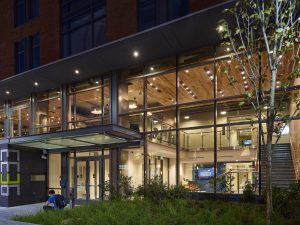
9 East 33rd, the apartment complex where I and my fellow scholars currently reside – a 2-minute walk away from Johns Hopkins University Homewood campus
As a rising sophomore at CCBC, this is the first time I have been exposed to anything research-intensive and of this caliber. Along with dozens of STEM students enrolled in similar bridge programs in the sciences, we humanities scholars — three HBCU students and 10 CCBC students (from all 3 Catonsville, Essex, and Dundalk campuses) — are living our research lives to the fullest this summer. We are seeing the minutiae of the research processes and methodology, experiencing the practical yet rewarding confusion that humanists experience when delving into their topics, and reveling in the collaborative atmosphere that we ourselves have nurtured.
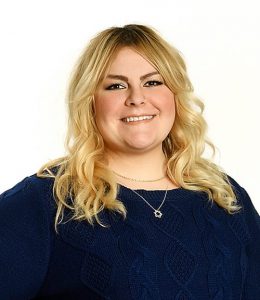
The ❤ of our humanities souls = Dr. Natalie Strobach, our mentor and JHU director of undergraduate research
Working under the direct mentorship of the most amazing Dr. Natalie Strobach, the director of undergraduate research at Johns Hopkins University, and Ph.D. candidates from the university, we have worked tirelessly over the past few weeks to chisel our personally chosen research topics in the humanities and are now at the tail end of the entire process. With just about 3 weeks left to go in the program, all of us humanities scholars have a unanimous consensus: an innate wish that programs such as this were more prolonged, that we had further such opportunities to enhance our student life, and that we were able to pursue further research in other topics.
When you begin this entire thing, you think it is easy.
Oh, pick a humanities research topic? Sure. I got a couple, you think. But then when you delve into it, within the structure of a globally renowned research institution’s Humanities Collaboratory (which, to my knowledge is one of the only in the United States), the weight of realization descends upon you.
For instance, I had originally wanted to explore the concept of empathy and how that both enhances and inhibits our responses to critical events, such as terrorism. Paring the general topic down to my current research topic, “Mass Media’s Ideology of Middle Eastern Terror and the Impossibility of the Individual,” and then writing a full research paper on the topic (no, it wasn’t a requirement for the program — just something I chose to do in organizing my research) taught me not only how ignorant I am but also how much I have yet to learn. Yes, the end of the research process helped me become more educated as well but I like to focus on ignorance because we all have a lot to learn.
The implications of ideologizing others are variable, especially when, for instance, group stereotyping is based on historical prejudices leveled against a minority group. I argue in my research that terrorists — no matter their reprehensible actions — should not be ideologized in the mass media because it hurts an individual understanding of personal grievances that are often combined with political grievances in the commission of terrorist actions. This charged topic of terrorism can easily funnel out into a swarm of related topics, but I had to maintain my strict focus on the mass media’s representation of the Middle Eastern terror and how the individual is lost in that representation. The implications are pretty serious. If we stop ideologizing the Middle Eastern terrorist and begin to understand the individual, we can streamline the counterterrorism initiatives currently in place. We can come out of the abstractions in the “war against terrorism” and develop a more empathetic understanding of what causes people to partake in terrorism. We can help buttress our civil, pluralistic society and aid our democratic government in its fight against terror. Since I have yet to present my research findings, this is all I will presently leave you with.
The fact that I was able to partake in such research boiled down to personal reasons. Each and every single one of us humanities scholars chose their topics because the topics were personal to them. There wasn’t a main text we all had to read and then be forced to analyze in our research, contrary to what is conventionally done in our high schools and colleges. The unique approach to this summer fellowship was that we were each left to our own devices. We were not enabled, but challenged. Often brutally. We cried through the process. We established bonds. We loved and hated each other for pinpointing our faults. But we emerged out of it unscathed in our love for the humanities.
The fact that other STEM students in similar bridge programs came from 4-year institutions did not deter us community college students, but brought out the best within us, in championing each other’s work product and in taking a leap of faith, was part of the self-discovery process. I already knew that we at CCBC come from various backgrounds and for various reasons. The fact that our college will be represented at two symposiums (one at Hartford, CT and one right here at Hopkins) with such beautiful and interesting topics is a given, knowing the inner grit that guides CCBC students. The CCBC humanities scholars who were selected for this prestigious fellowship are truly the most amazing cohort I have gotten to know this summer. They don’t realize it: because I don’t tell them. But they are the best CCBC has to offer. And I know in my heart of hearts that they will go on to continue the pursuit of their studies in the humanities in 4-year institutions and even beyond in their lives. (As a bonus for being in the fellowship, we have regular GRE and graduate school application workshops held on Wednesday and Thursday nights; if intentions are an indication, many who were not planning to pursue their bachelor’s or Ph.D.’s have told me that they are now seriously reconsidering).
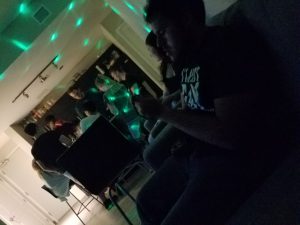
Routine Friday partying in my suite
Oh and one last thing (my opinion, of course): DO. NOT. make the mistake of taking summer classes when you are immersed in as intense of a program as this summer research experience. I truly regret spending time completing my CRJU 101 or DCOM 101 classes when I could have been partying like my friends. The reason is I doubted this fellowship would be as intensive as it turned out to be. But as it was my first semester and I was still learning, I forgive myself. Besides, I am earning 6 credits — which is like saving on half a semester. Summer has its benefits. Yet if given a choice, I would certainly forgo taking summer courses when participating in full-time research. Did I mention we get a competitive stipend? 💰
So that is what I will leave you with at present.
Want to see what the LANS schedule looks like? Want to see what we CCBC students are presenting our research findings on? Search “Community College of Baltimore County” in the following document using Ctrl + F and see for yourself: LANS Schedule
I hope to write about the LANS conference as well but it may be during the fall semester. At the very least, I will take a lot of pictures to share what life is like at the culimination of being a summer researcher. Hopefully a video as well? 😉 Stay tuned.

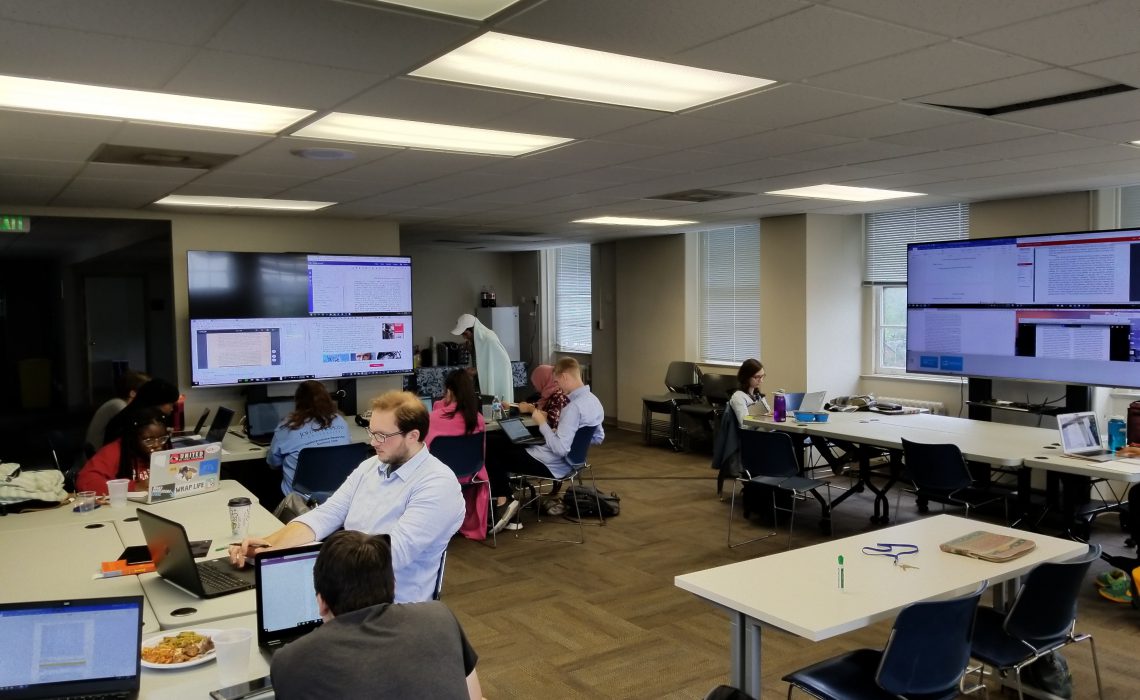
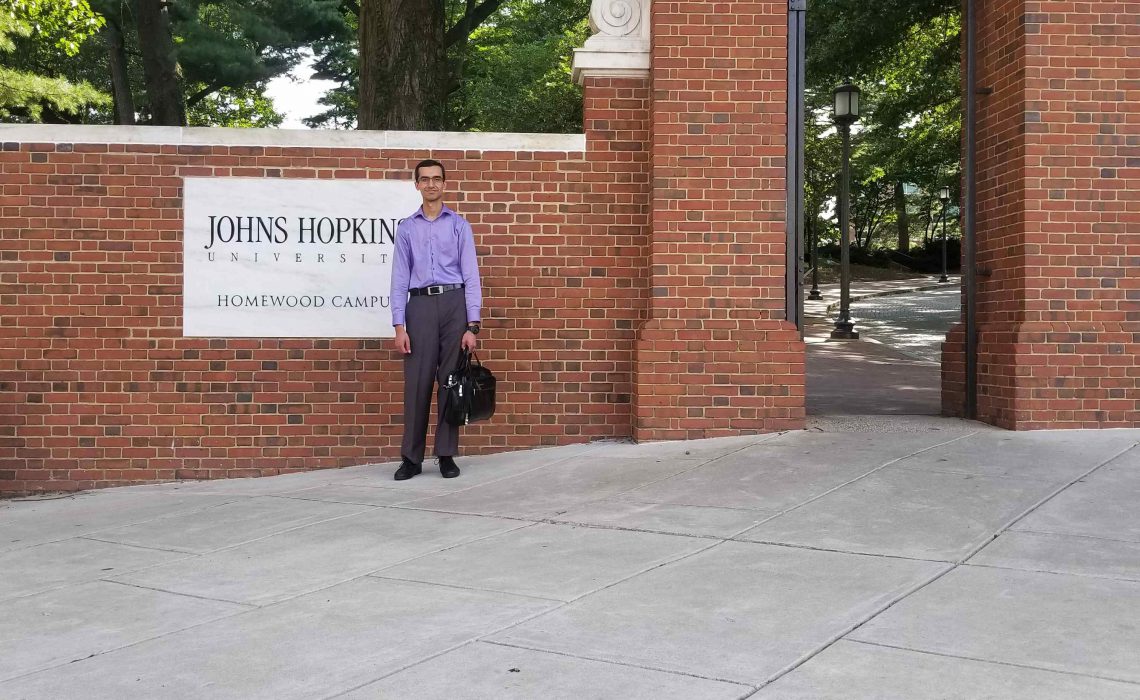
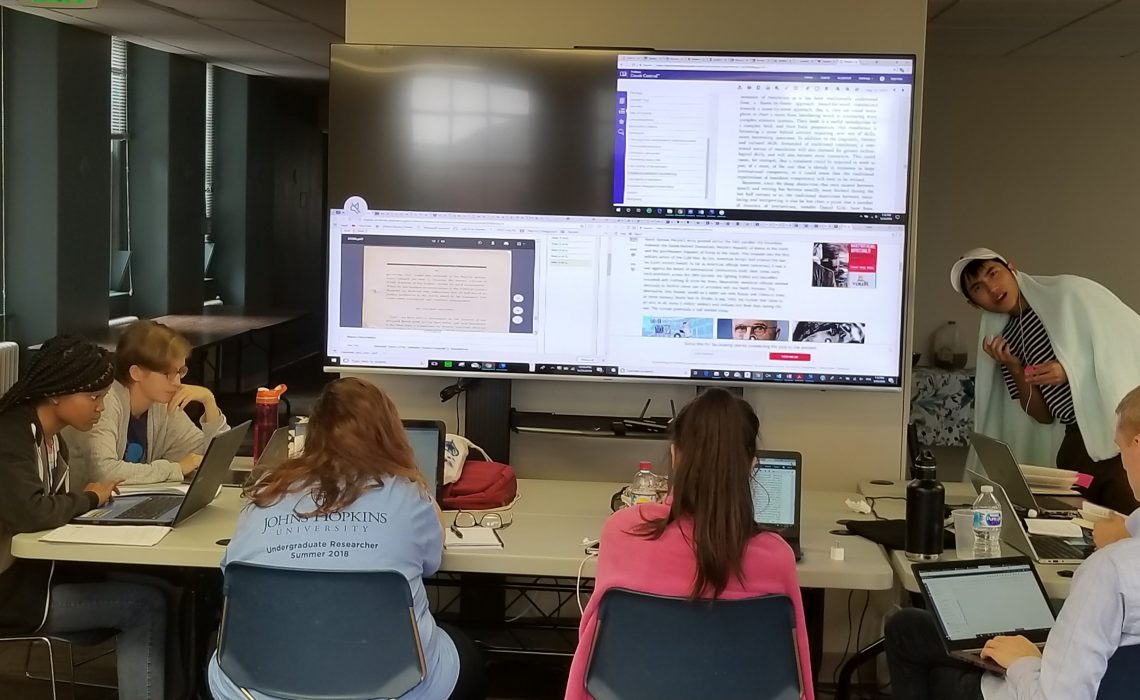
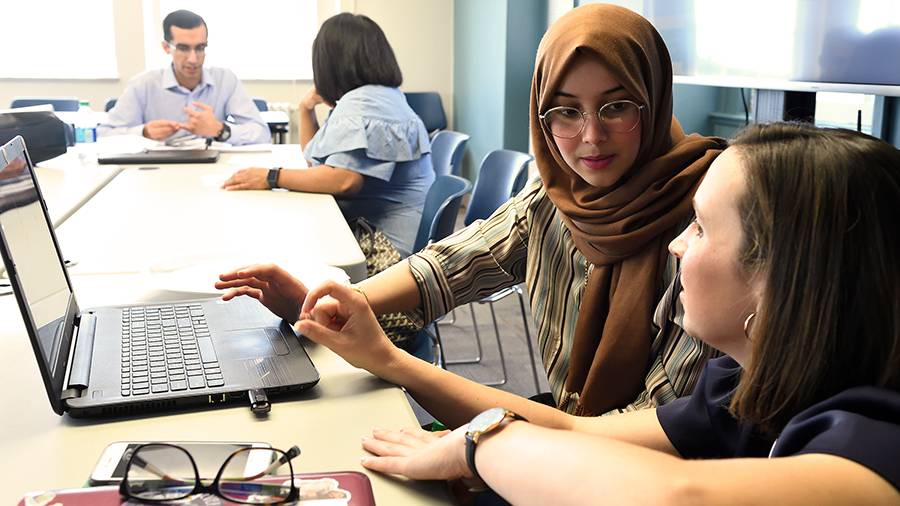
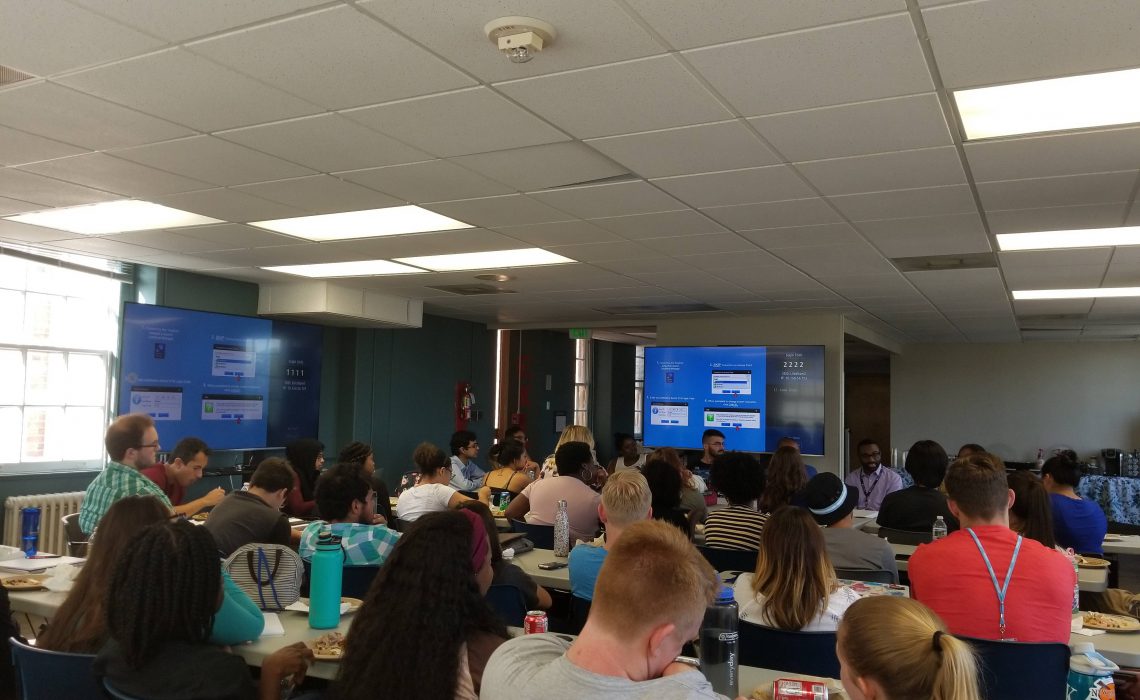
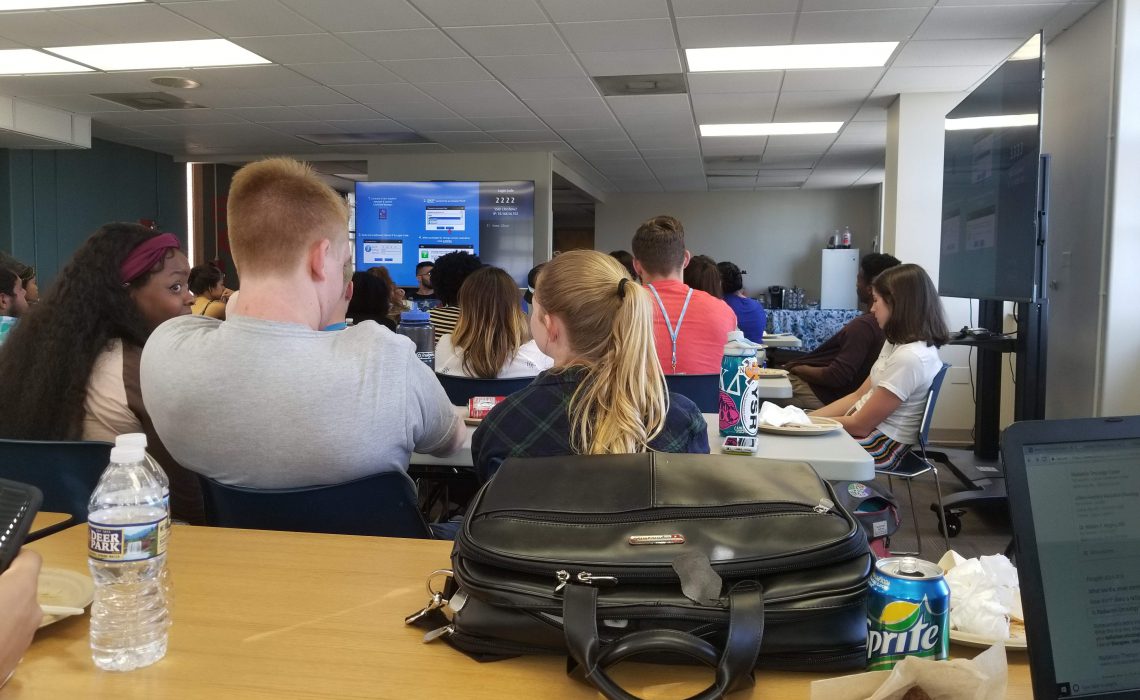
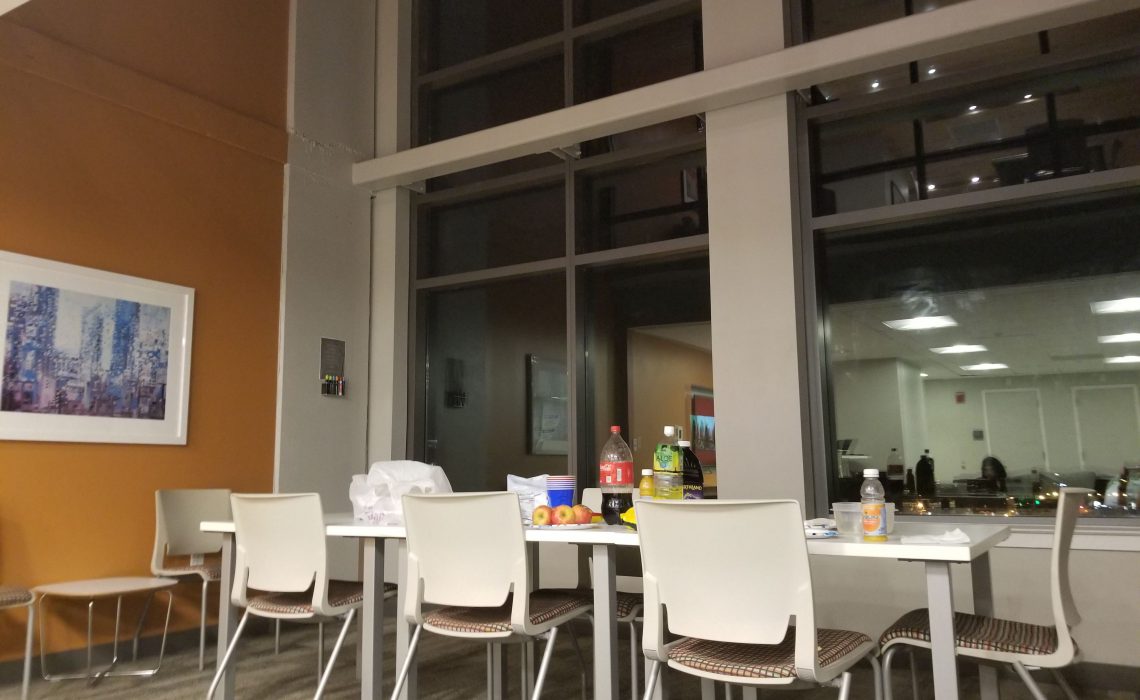
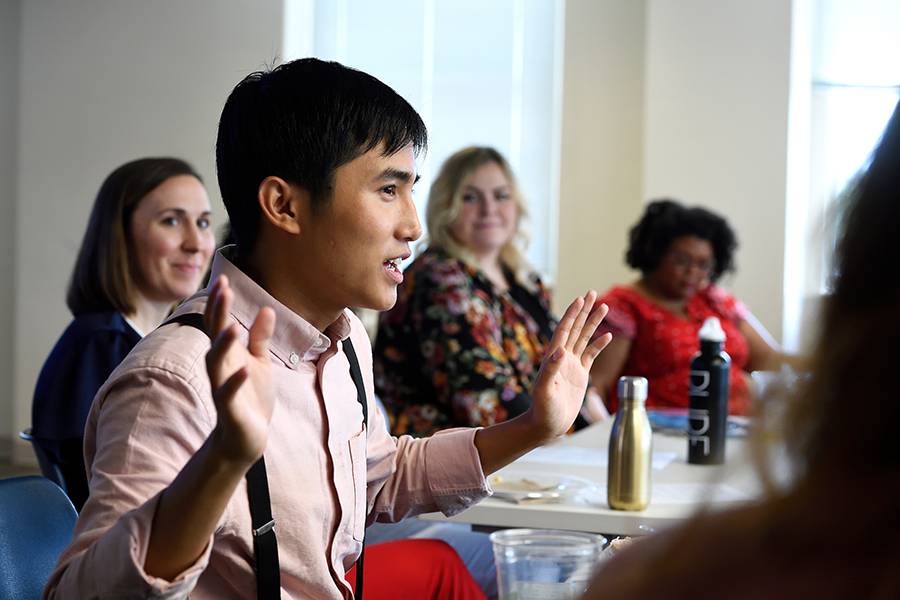
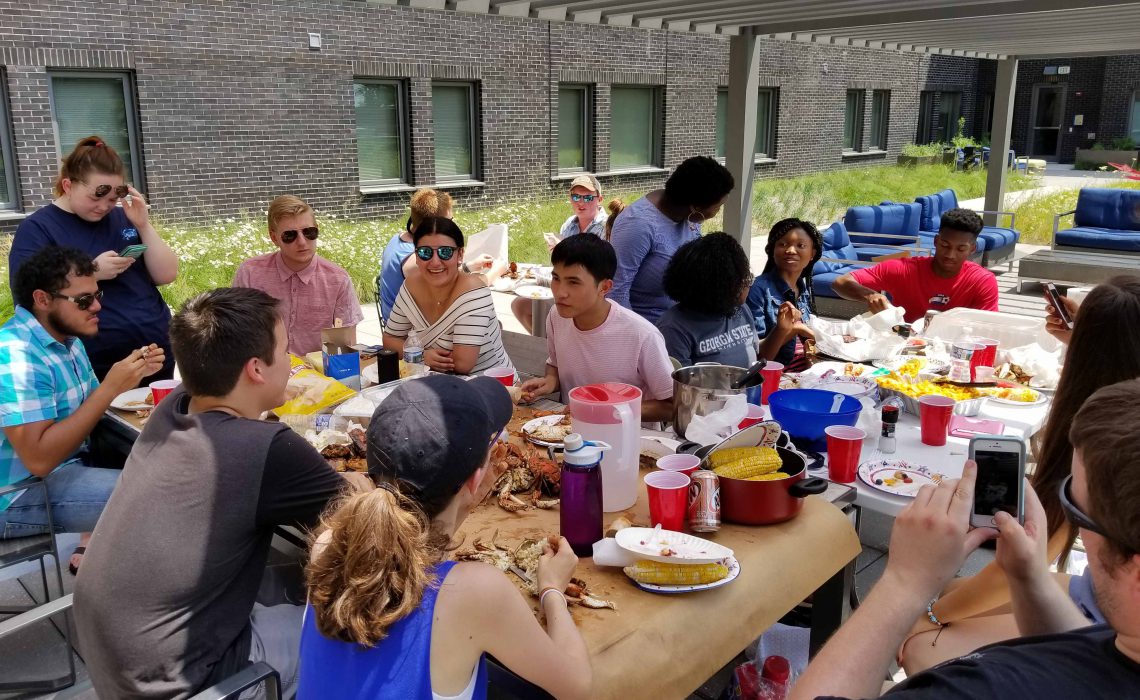
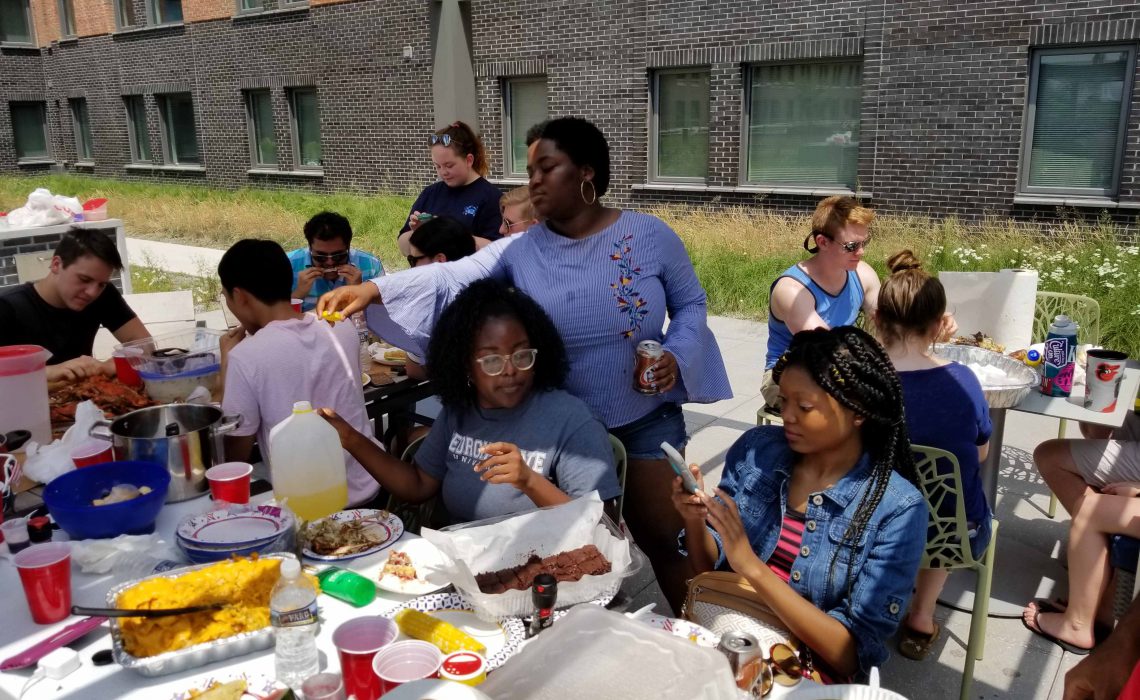
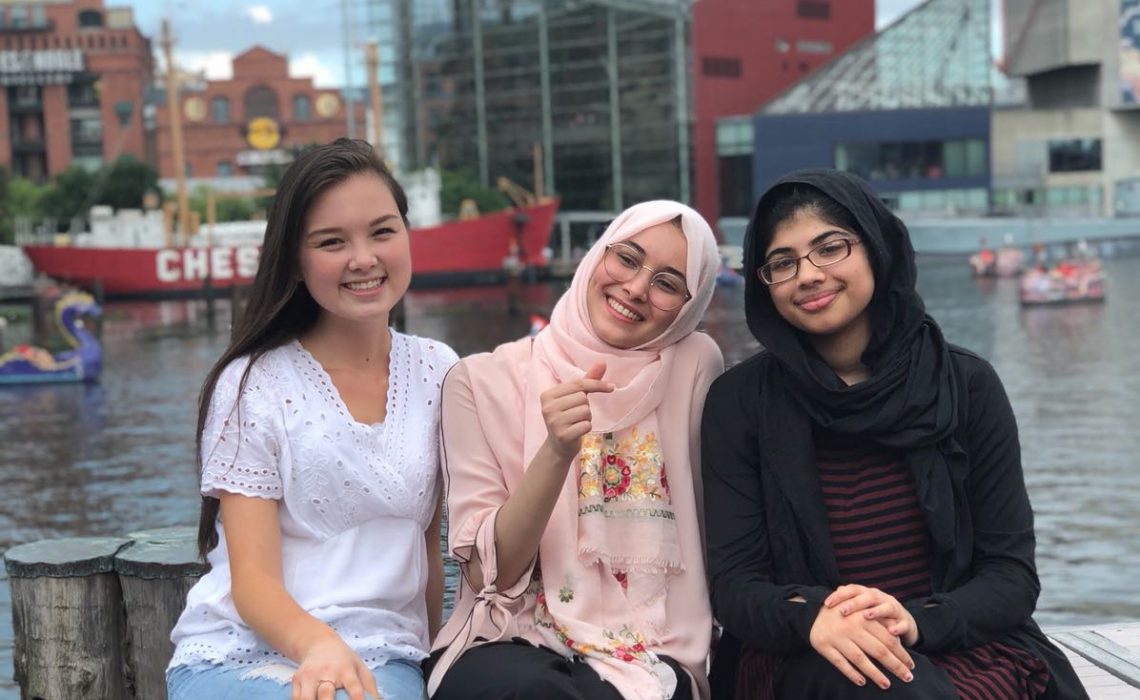
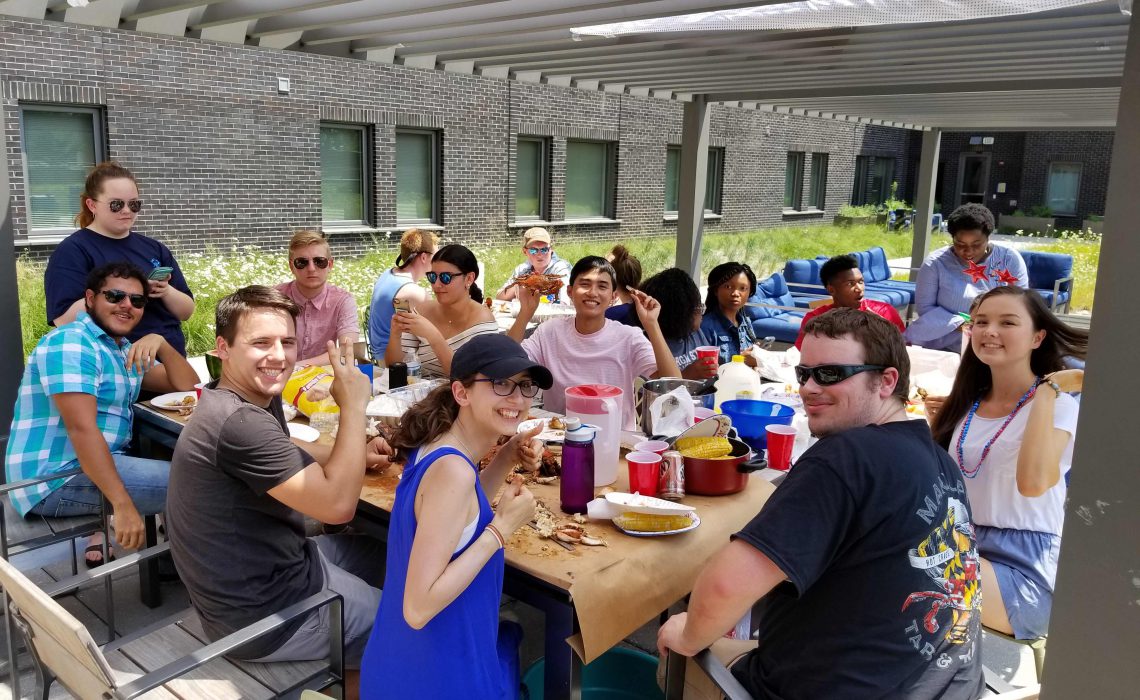
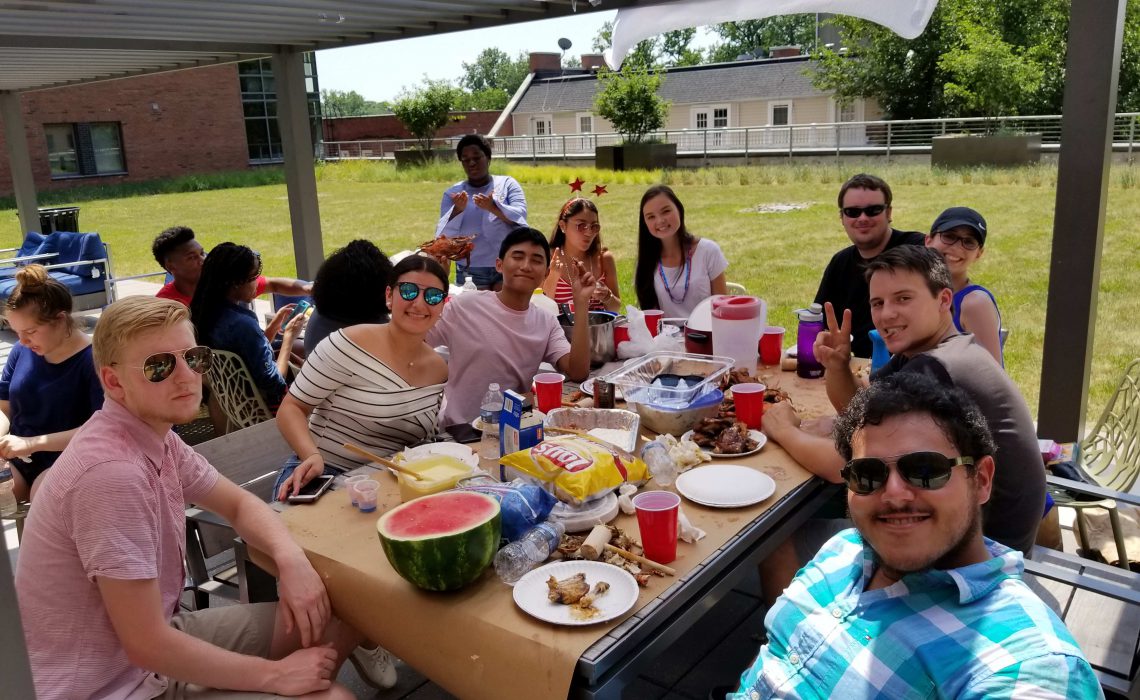
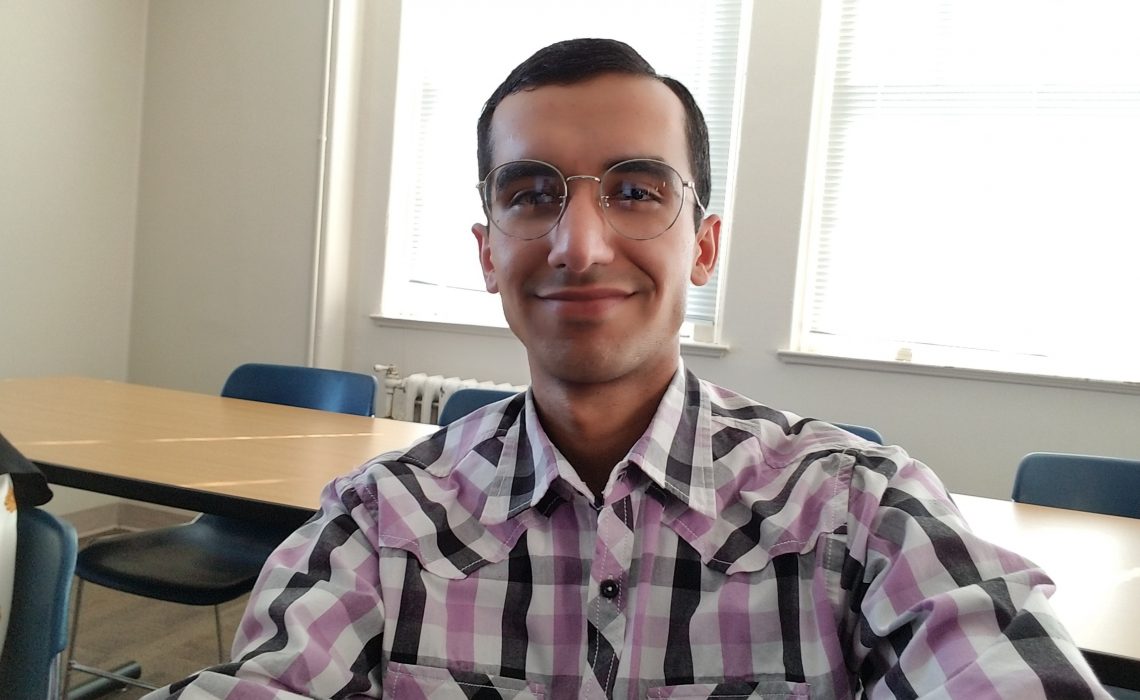
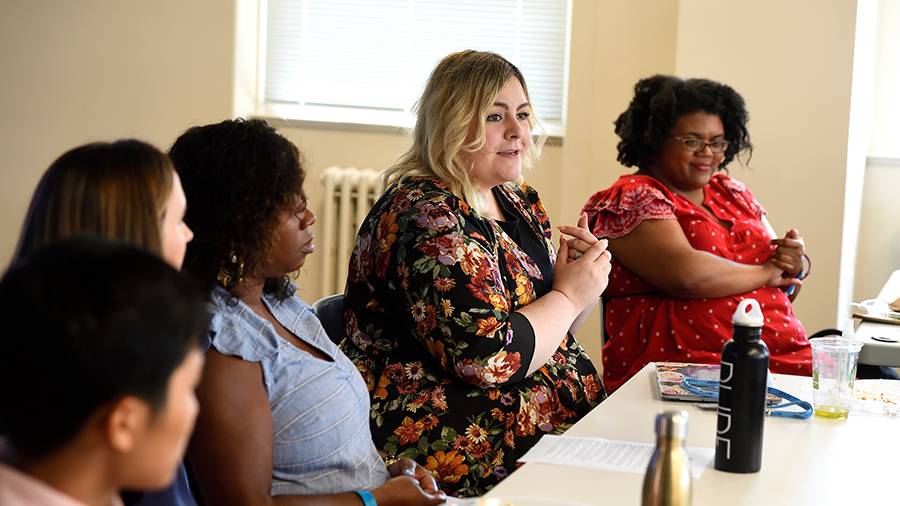




Awesome work, i look forward to reading your next blog!!!
Nice work, Mohammed. I’m so proud of you guys! I hope some of you will be available to discuss your research experience with prospective Catonsville applicants for next year. We’ll talk about making that happen.